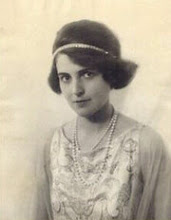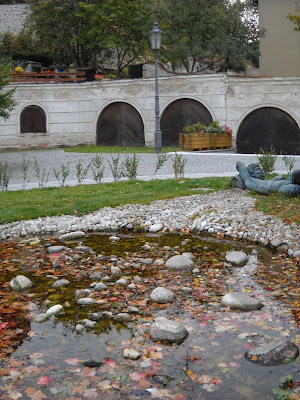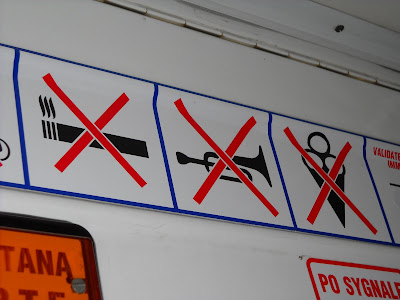My computer and I have been reunited after a break up (the separation was not amicable), just as my camera took its final bow. I am going to attempt to find another one in Praha this weekend (cheap electronics are hard to find here) because next week is our lonnnnng trip to Poland/Vienna/Moravia and you're not gonna wanna miss this.
First of all, let me talk about a subject close to my heart: the theatre.

the happy finale to Czech opera "The Bartered Bride"Last Thursday we CET-ers went to Narodni Divadlo, the National Theatre, which is, typical to Prague, a cavernous, beautiful building. It was built in the mid to late 19th century and was meant to be a point of intense national pride. I'd say that worked out.

yeah, that's an intensely gorgeous building
We saw a Czech comedic opera called "The Bartered Bride" which included songs about the greatness of beer, lots of romantic subterfuge, a circus scene with acrobats, trapezes, and a guy in a bear costume, and fun songs. We all dressed up in our Sunday best, looked through fancy binoculars, and altogether felt very chic and cultured, as well as having a good time. That picture up there is the big finale; after about 2 hours of VERY FRUSTRATING MISUNDERSTANDINGS, the happy lovers waltz into the sunset. (Fellow student Rebecca and I realized we both have a low threshold for awkwardness, making sitcoms and romantic comedies difficult.)
 site of a former church in the empty village
site of a former church in the empty villageThen came the weekend of Very Sad Things, starting with Lidice, a town that Hitler arbitrarily chose for total destruction - all the men shot, women sent to work camps, and children gassed. Then the SS bombed and levelled every building in the village, making it as though Lidice had never existed. There was something devastating and humbling, but also beautiful about the empty town, which has been replanted with trees (in the glory of autumn), artful monuments, and a rebuilt town not too far from the original site. We spoke to a survivor, who, despite the terror of what she'd been through, maintained humor and energy, and recently celebrated her 60th anniversary with her husband.
 a monument to the children
a monument to the children
My camera broke two days later in Terezin, the concentration camp, and perhaps it's best that there aren't too many photographs. Every time I took one, it felt...weird, maybe disrespectful. It was a relentless day of tragedy and disgust, and I was extraordinarily depressed, seeing the inhuman conditions and children's paintings captioned with dates of their murders in Auschwitz.
The thing about learning about this stuff is that you can either let it get you so down you don't get back up, or you live your life with more passion than before. I'm writing a paper on children's theatre in Terezin, and I've been reading a lot about this production of the children's opera Brundibar. The title character was played by a vibrant little boy who was, according to all testimonies, brilliant, nuanced, intuitive, and always put a smile on the younger kids' faces. Though everyone was constantly sick and malnourished and supported by understudies, Brundibar was too perfect. He did every performance and struck every audience member with awe. Once he was transferred to Auschwitz, the production stopped.
The survivors who participated in this production report absolute joy, friendship, pride, and hope. Despite the terrifying world they lived in, they were able to band together to make theatre, and it enriched and inspired their lives.
I am blessed to be free to be who I am, to practice any religion I choose, not to be ashamed of my heritage, free to travel and create and spend time with people I love. Life is something to be cherished and never squandered.
 the group at Terezin
the group at Terezin






























